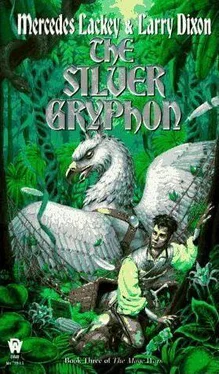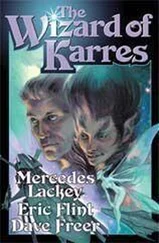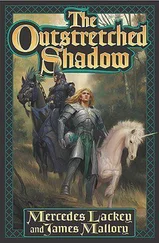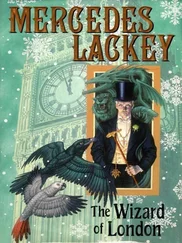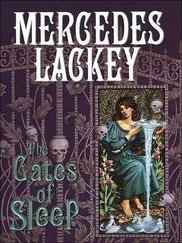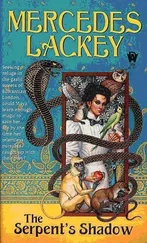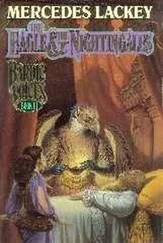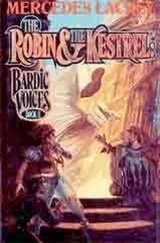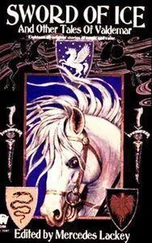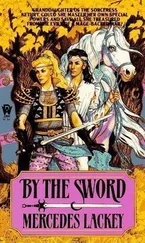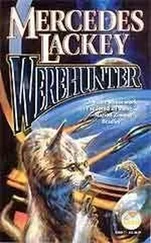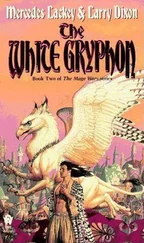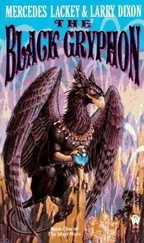“Outpost duty! And you fresh out of training!” he kept saying, all through dinner. “I can’t ever remember any Silver as young as you are being put on remote duty!”
His tone was forced, though, and he hadn’t eaten more than half his meal. At the least, this sudden change in his son’s status had put him off his feed. Was he worried?
Why should he be worried? What’s there to be worried about?
Zhaneel, Skandranon’s mate, cuffed him lightly. “Let the boys eat,” she admonished him. “You won’t be doing Tadrith any favor by giving him no time to have a proper meal.”
But her look of rebuke followed by a glance at Keeth made Skandranon’s nares flush red with embarrassment. He had been neglecting Keeth the whole time, although Keeth didn’t seem too terribly unhappy about that. “I hear fine reports about you from Winterhart,” he said hastily to his other son. “You’re training in things your mother and I dreamed of doing, but were never able to achieve.”
Tad winced. Now, if that didn’t sound forced, he’d eat grass instead of good meat!
“Well, if there hadn’t been that annoying war, Father, you two would probably have invented the gryphon trondi’irn, the gryphon kestra’chern, and the gryphon secretary,” Keeth said, with a sly grin at his brother. “And probably the gryphon seamstress, mason, and carpenter as well!”
Trust Keeth to know how to turn it into a joke, bless him.
Skandranon laughed, and this time it sounded genuine and a bit more relaxed. “And maybe we would have!” he replied, rousing his feathers. “Too bad that war interfered with our budding genius, heh?”
Tad kept silent and tore neat bites from his dinner, the leg of a huge flightless bird the size of a cow and with the brains of a mud-turtle. One of these creatures fed the whole family; the Haighlei raised them for their feathers, herding them on land that cattle or sheep would damage with overgrazing. The gryphons found these creatures a tasty alternative to beef and venison.
Tad was perfectly pleased to let clever Keeth banter with their father. He couldn’t think of anything to say, not when beneath the Black Gryphon’s pride lurked a tangle of emotions that he couldn’t even begin to unravel. But he was more and more certain that one of them was a fear that Skandranon would never admit to.
Of course not. He doesn’t want to cripple me with indecision or even fear of my own before I go out there with Blade. He knows that if he shows he’s unhappy with this, I might be tempted to back out of it. And he knows that there’s nothing to worry about; we ‘re hardly the first team to ever take this outpost. We ‘re just the first team that included one of his sons, and he’s been thinking about all the accidents that could happen to us ever since he heard of the posting.
He was worrying too much; Tad knew that, and he knew that his father knew it as well. This was not wartime, and they were not going to encounter hostile troops.
But this is the first time I’m “leaving the nest.” I suppose it’s perfectly normal for parents to worry. I worry, too, but I know that it can be done. I wonder why parents can say they trust their young so much, yet still fear for them? He supposed that a parent’s imagination could conjure up a myriad of other dangers, from illness to accident, and play them out in the space of a heartbeat. Parents had to be that way; they had to anticipate all the trouble youngsters could get into and be prepared to pluck them out of danger before they got too deeply into it.
But I’m an adult, and I can take care of myself! Isn’t he ever going to figure that out? He has been an adult for ages longer than I have, and he has had to be rescued before — so why is it that adults regard trouble as the sole territory of the young? Do we remind them of their vulnerability that much?
Between bites, he cast a glance at his mother, surprising her in an openly concerned and maternal gaze at him. She started to look away, then evidently thought better of it, and nodded slightly.
Mother’s worried, but she admits it. Father won’t, which will make it worse on him. And there’s no reason for either of them to worry at all! Maybe the more intelligent a parent is, the more they worry, because then they are able to see more of what could go wrong. The Kaled’a’in Quarters know that they could concentrate just as much on what could go right, but when it comes to children — or young adults — it could be smartest to have only grudging optimism. Still. . . .
He spared a thought for Blade, who was probably undergoing the same scrutiny at the hands of her parents, and sighed. He didn’t know how Amberdrake and Winterhart would be reacting to this, but Blade had threatened to spend the night with friends rather than go home to face them. Tad had managed to persuade her to change her mind.
It could be much worse, he told himself. They could be so overprotective that they refuse to let me take the post. Or, worse than that, they could be indifferent.
A couple of his classmates had parents like that; Tad had heard mages speculating that the raptor instinct ran so strongly in them that it eclipsed what Urtho had intended. Those parents were loving enough as long as their young were “in the nest.” They began to lose interest in them when they fledged, just exactly as raptor parents did. Eventually, when the young gryphons reached late adolescence and independence, their parents did their best to drive them away, if they had not already left. Such pairs were more prolific than those who were more nurturing, raising as many as six or eight young in a reproductive lifetime.
But those offspring were, as Aubri would say, “glorified gamehawks;” they lived mostly for the hunt and, while extremely athletic, were not very long in the intelligence department. Most of the gryphonic fatalities at White Gryphon had occurred among this group, which for the most part were assigned to hunting to supplement the meat supply of the city. They were very much like goshawks in focus and temper; they would fly into the ground or a cliff during a chase and break their foolish necks, or go out in wretched weather and become a victim of exposure. Some simply vanished without anyone ever knowing what happened to them.
Aubri had said once in Tad’s hearing that a majority of the fatalities in gryphon-troops of the war—other than those attributable to human commanders who saw all nonhumans as expendable and deployed them that way—were also among this type of gryphon. Needless to say, the type had been in the minority among those that had reached safe haven here, and were not likely to persist into a third generation. Not at the rate that they were eliminating themselves, at least!
When they weren’t hunting, they could usually be found lounging about on the sunning platform with others of their kind, either attempting to impress like-minded females or comparing wing-muscles. Granted, there was always a bit of that going on among young gryphons, but this lot acted like that all the time!
Very attractive, to look at perhaps. But as trysting mates or play-fighters, I don’t think I could stand them.
So while Skandranon was probably thinking over how many young gryphons of Tadrith’s generation had been lost, it was not occurring to him what those unfortunate fatalities had in common.
Say — an absolute dearth of brains. A squandering of what they had. And most importantly, a lack of decent parenting. Keeping a young one’s body alive was one thing, but it only created more breeders to do the same with the next generation they bred. Even a charming young idiot can succeed with good parenting. I’m proof of that, aren’t I?
Читать дальше
